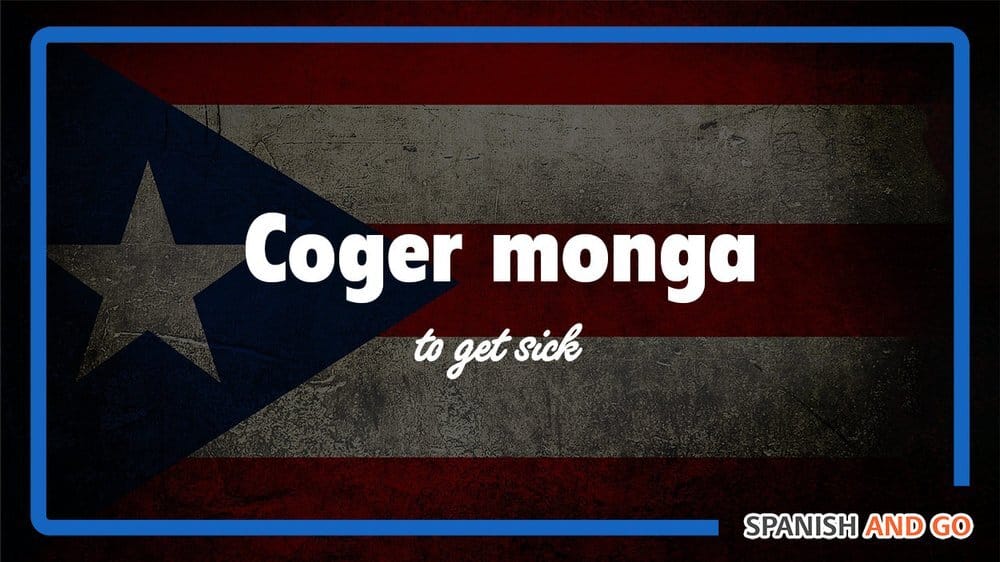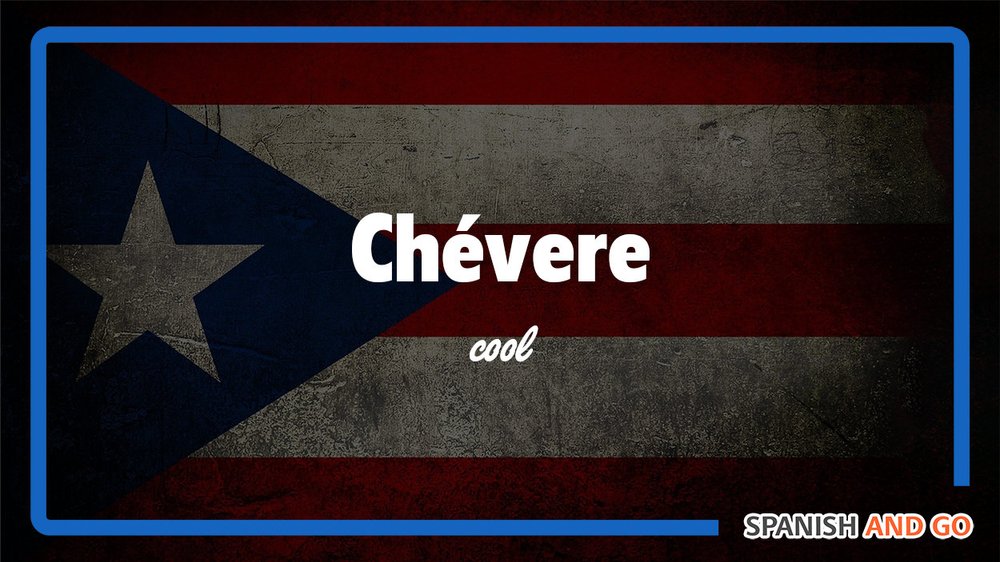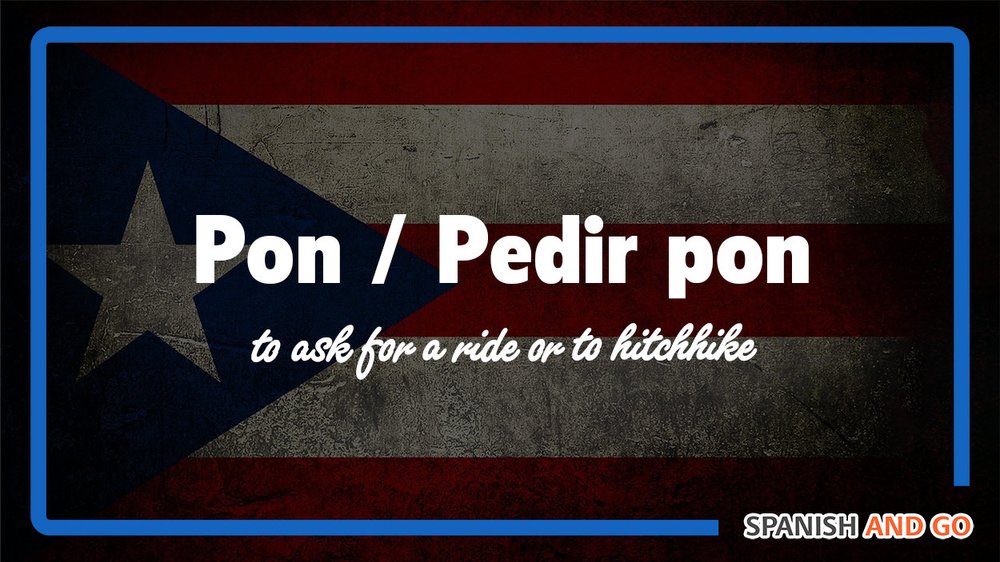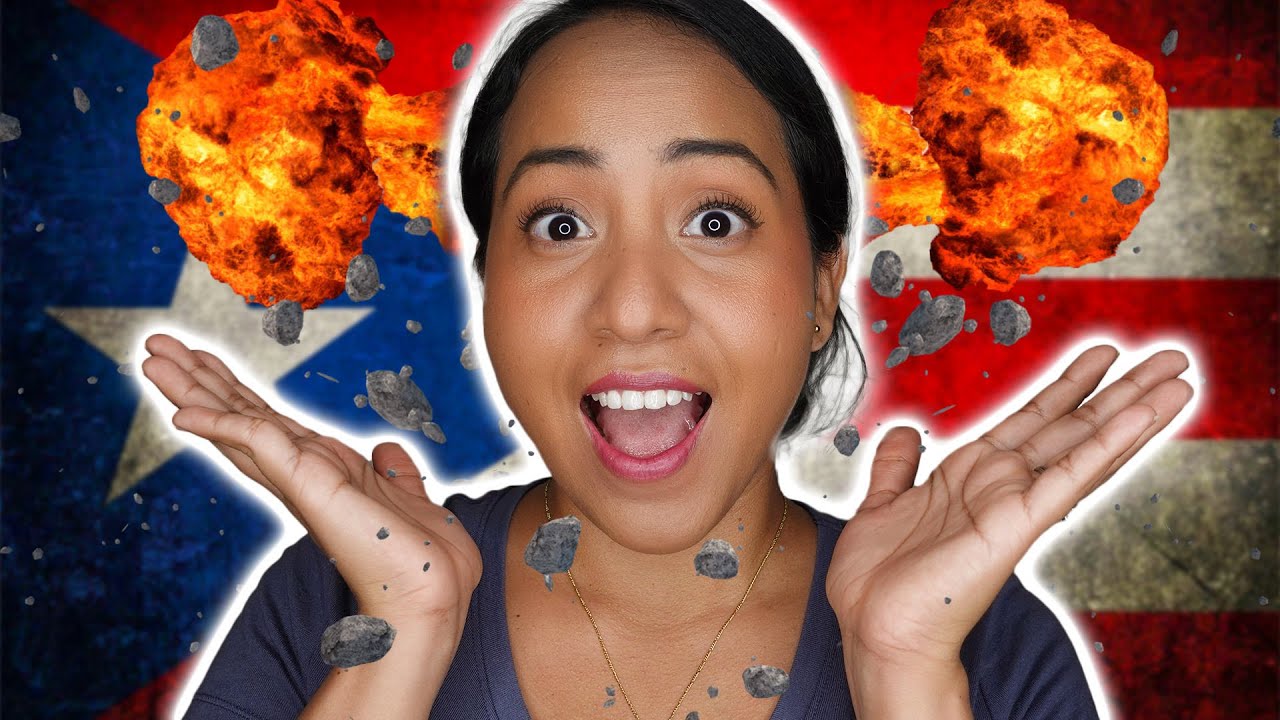40 Puerto Rican Slang Terms That Blew Our Minds
Puerto Rico, a Caribbean paradise, is not only known for its stunning beaches and vibrant culture but also for its unique Puerto Rican slang. This captivating variety of Spanish is an essential aspect of the island’s charm and allure, and it’s sure to blow your mind with its quirky expressions and unforgettable phrases. These words and phrases add a touch of authenticity to the conversations of locals and offer a fascinating insight into the Boricua way of life.
In this article, we dive into dozens of common Puerto Rican slang words and phrases that truly showcase the rich linguistic heritage of the island. You’ll encounter expressions like “al garete,” “mano,” and “corillo” used to describe various situations by Puerto Ricans. We’ll also introduce you to common terms like “revolú,” as well as verbs like “janguear,” and “bregar.” By the end of your reading journey, you’ll be ready to impress with your newfound knowledge of Puerto Rican slang and be able to understand Puerto Rican Spanish better.
Before we dive in, it’s worth pointing out that words ending in -ado, -edo, and -ido are most times pronounced -ao, -eo, or -io by Puerto Ricans. So, apply that to any word in this list with any of these endings.
Now let’s get into it and explore the world of Spanish slang that makes Puerto Rico’s language so colorful and distinctive!
1. Abombado / Abombao
This means rotten or anything that is echado a perder.
2. Averiguado / Averiguao
It basically means someone metiche / argüendero, someone who is nosy.
3. Al garete
This means crazy or a lo loco or done very quickly. It can also mean carelessly.
4. ¡Ay bendito!
This one is like, “Oh my God!” in Puerto Rican Spanish. People use it all the time to show surprise or relief after a bad situation.
5. Bicho
This refers to the male genitalia. In many other Spanish-speaking countries this means insect, but here you would just use insecto if you want to refer to a bug.
6. Bregar / Bregal
This means to deal with something or also to work hard to get out of a difficult situation. To hustle.
Example: A single mom has to bregar. She has to work hard in order to take care of her children.
By extension, “bregando con” is a phrase meaning “dealing with” or “struggling with.” It is often used to talk about difficulties or challenges that someone is facing. For example, “Estoy bregando con mucho trabajo” means “I’m dealing with a lot of work.”
7. Brutal
This means cool or awesome. In Mexican Spanish, this would be like chido or padre. Another way to say this in Puerto Rico would be chévere.
8. Bochinche
Bochinche is something similar to gossip, but also like a loud thing going on, like turmoil. It can be a lot of people together, talking loudly. In some other countries, people would say alboroto or argüende, but here it is bochinche.
9. Corillo
This means a group or your group of friends. Literally, this would mean chorus in just standard Spanish, but in Puerto Rican slang, you’re talking about your crew, basically.

10. Coger monga
Coger monga means that you caught a cold, a cough, maybe even the flu. So, basically this means to get sick.
11. Chacho / Acho
Literally, this refers to a muchacho or muchacha. Depending on how you’re using it, you could say acho or chacho. But this can be used to refer to a guy or a girl, or it could also be used as an expression of discomfort, surprise or to emphasize a phrase. So if someone told you some bad news, for example, you could respond, “¡Acho!” It’s kind of like an uncomfortable reaction to the bad news or an expression to be like, “Oh, wow, that’s heavy!”
12. Chavos / Chavo
Chavo in Puerto Rico refers to a penny. But in general, it means money. There is a chavo prieto, which is a copper penny. Prieto is used to describe someone with tan or dark skin. (Be careful with this one because depending on the context it can be a word of endearment or an insult to call someone prieto.) Many people use Chavos for coins or bills. So, you could hear someone say: No traigo chavos. – I don’t have any money on me. You’ll also hear money referred to as pesos on the island, even though they use the U.S. dollar.

13. Chévere
This means cool, very good, fantastic, or phenomenal. You can use it as a stand-in for any time you would use “cool” in English.
14. Chavado / Chavao
This means broken or something that is not working correctly. Let’s say that something bad happened to you, you’re chavao. This word can also be used when someone or something is bothering you, you can say: Los hijos del vecino chavan mucho. – My neighbour’s kids bother a lot.
15. Diantres / Diantre
This means diablos in other Spanish-speaking countries, or damn it / darn it in English. You’ll hear this expression being used to show surprise or to emphasize a phrase. Kind of like the word hell is used in English. For example, you could say: ¿Qué diantres fue eso? – What the hell was that?
16. Embuste
This means mentira, which in English is a lie. If someone is telling you something that is kind of hard to believe, you can say, “Embuste…” Like, “That’s not true. / That’s a lie. / I don’t believe you.”
17. Estar por Jurutungo
This means to be far away. In this phrase, Jurutungo is a place that doesn’t necessarily exist. Although it does here on the island! It’s a beautiful place with many waterfalls. But in conversation, this is used to refer to a place that is so far away, it’s practically nonexistent. Much like “Timbuktu” in English.
18. Jartarse / Jaltarse
This means to eat a lot. So when you eat so much that you are full to the top, that’s jartarse. It’s that uncomfortable feeling you get after eating tons of delicious food. This word comes from harto which means both full and annoyed in other palaces.
By extension, “jartera” refers to the feeling of being overly stuffed or full after eating a large meal. It’s similar to the English phrase “food coma” or “stuffed.”
19. Janguear / Jangueal
This word comes from the English expression to hang out. Spanglish and code switching being so common in Puerto Rico has given people from the island many interesting and fun words like this one. In this case, the word has also changed its spelling with a J instead of an H.
20. Mano / Manín
This is a short form of hermano, which means brother, or a close friend.
21. Mahones
This refers to jeans and is pronounced without the “h.”
22. Nítido
Nítido is another word you can use when talking about something cool. Think of it as the word neat in English which is where this word comes from.
23. Pana
A common way to say friend or amigo.
24. Perrear
This means to dirty dance, to grind or to dance fiercely with or without someone. It is something you’ll hear all the time in reggaeton music. Some may also describe it as to twerk.
25. Puñeta
This means chingado in Mexico or fck in English. People use this word often to emphasize something when they’re really mad. For example, imagine that your dog ran away and it came back acting like nothing happened. You would be like, ¿Dónde puñetas estabas? – Where the fck were you?
26. Pichear
It means to ignore something or to let something go. Use it when something happens and there’s pretty much nothing you can do about it. ¡Pichéalo! – Let it go!
27. Pompeado / Pompeao
Another word from Spanglish. As you may imagine, this word means pumped or excited.

28. Pon / Pedir pon
This means to ask for a ride or to hitchhike. In Mexican Spanish people would say pedir raite, which comes from the word in English ride, but in Puerto Rico you’ll hear pedir pon.
29. Revolú
This means disorder, a mess, a disaster. For example, someone could say: Recoge tu cuarto, está hecho un revolú. – Pick up your room. It’s a mess.
30. Sorbeto
In English this word would be a straw. There are many different names for a straw throughout the Spanish-speaking countries. In Mexico this is a popote and in other countries they’re called sorbete, paja, pajitas, pitillo, etc.
31. Zafacón
This exotic looking word is used both in the Dominican Republic and in Puerto Rico and it refers to a garbage can or wastebasket. The origins are uncertain, but some claim that this term comes from a campaign during WWII to “save a can” or “safety can.” Others believe this term comes from the Arabic word zafa or zafaca which means a clay container or vasija.
32. Cafre / Yal
Cafre is an insult for a man or guy who is uneducated, poor, and sometimes rude. Yal is basically the same but for a woman. Both of these are used to describe someone loud who acts like they don’t care about what others think of them.
33. Estar jincho
This expression means to be pale, to have no color on your skin. If you get scared sometimes you look jincho or jincha. You can also use this word to refer to someone who is sick and looks pale and weak.
34. Jevo / Jeva
These two words refer to a boyfriend or girlfriend in Puerto Rico. If you ask someone about their weekend plans they may say something like: Voy a janguear con mi jeva. – I’m going to hang out with my girlfriend.
35. Pavera
This word comes from the word pavo which means turkey (as in the animal.) This word is used to describe a loud laughter or a case of the extreme giggles.
36. Tapón
While we lived in Puerto Rico, we were astounded by the traffic congestion, particularly in the metro areas. Navigating during rush hour proved challenging, which was unexpected for an island with a population of around 3 million. As stated by Global Fleet, Puerto Rico holds the title for the highest number of cars per square mile globally, with 146 vehicles per street mile and 4,300 vehicles per square mile.
It’s fitting, then, that Puerto Rico has developed its own colloquial term for traffic. While other countries might use “tráfico” or “tránsito,” Puerto Ricans typically refer to it as “tapón.”
37. Parquear
“Parquear” i Puerto Rico means “to park” or “to hang out” in a casual setting. It’s used to describe the act of parking a car or spending time with friends in a relaxed environment.
38. Jumeta
“Jumeta” can be translated as “extremely drunk,” or “really high” in English. It’s used to describe someone who is noticeably under the influence of alcohol or drugs.
39. Birra(s)
“Birra” or “birras” (plural) is a term used to refer to beer or alcoholic beverages, similar to the English slang term “brews.” It’s commonly used when talking about enjoying a few drinks with friends.
40. Tiraera / Tiradera
Both “tiraera” and “tiradera” are Puerto Rican slang terms used to express a feud between rappers or reggaeton artists. These terms are often used in the context of discussing the competitive nature of the music industry. A “tiraera” can be a dis track, while both words imply a rivalry between artists. An equivalent English word would be “beef.”
Frequently Asked Questions
Bear in mind that numerous slang words you might encounter in Puerto Rico actually originate from the Dominican Republic. For instance, the term “bembé” signifies “fiesta” or “party” in Dominican parlance. As with many nations, Puerto Rico’s closeness to neighboring countries such as the Dominican Republic and Venezuela frequently results in an exchange of colloquial expressions. This also happens in English, where a lot of slang is shared between the U.S. and Canada.
It is crucial to recognize that slang and colloquial expressions often pertain to specific regions or cultural contexts. Therefore, it is essential to familiarize yourself with local slang when visiting different Spanish-speaking countries and exercise caution when using these terms around strangers to prevent causing offense. If you are uncertain about a slang term’s proper usage, refrain from employing it indiscriminately to avoid ruffling any feathers.
Wrapping Up
In conclusion, Puerto Rican slang is a true manifestation of the island’s rich culture, history, and linguistic diversity. It reflects the unique blend of Spanish, Taino, African, and English influences that continue to evolve and maintain the island’s vibrant identity. Puerto Ricans take great pride in their vernacular, as it allows them to connect on a deeper level and express their shared experiences and emotions. Whether you are visiting Puerto Rico or engaging with the Puerto Rican diaspora, taking the time to understand and appreciate this colorful slang not only shows respect for their culture but also opens up an authentic and lively avenue of communication. So go ahead: ¡échale ganas y sumérgete en el mundo del slang puertorriqueño! (give it your all and immerse yourself in the world of Puerto Rican slang!)





“Chavo” comes from an old Spanish coin called ochavo that was copper coin minted in Spain that was stopped being used by the XIX century. However the term continued to be used in Puerto Rico at least on the first part of the XX century, if you read an old Puerto Rican newspaper you will see the term “No tengo ni un ochavo” in use. Eventually the “o” was dropped.
Most of this I can verify as true slangs but nitido is not. For some reason that I can figure out is how this word is classified by many as a slang. It is not a spanglish word based on the neat word in English.
The word nitido is a regular spanish word that comes from Spain and is also found in Italian, Portuguese, and French. It has the same meaning as neat and it is used in Spanish in the same way.
That is used by us in Puerto Rico a lot more than in most other spanish speaking country is true, but it is not a slang.
The “Royal Academia de Español” (RAE) describes all its meanings which are the same as the word neat in such words as clean, clear, crisp, sharp, brilliant, perfect, smooth, soft (*). Example are “un sonido nitido, un ejemplo nitido, un enfoque nitido”, and many more using the word nitido. Even in the National anthem of Puerto Rico you will find the following words “… un cielo siempre nitido le sirve de dosel …”
Use it that way and you’ll see how it brightens, no pun intended, a sentence.
Hope that you have a great “un dia bien nitido” day.
(*) limpio, terso, claro, puro resplandeciente, brillante, crujiente,
Wow great article as a Nuyarican I fully understand being first generation born to Puerto Rican parents I think they threw so much slang at me that I still use today with my entire familia I still address my best friends from Cuba and PR as Pana ,pánito, chico, chacho and my favorite has to be chévere